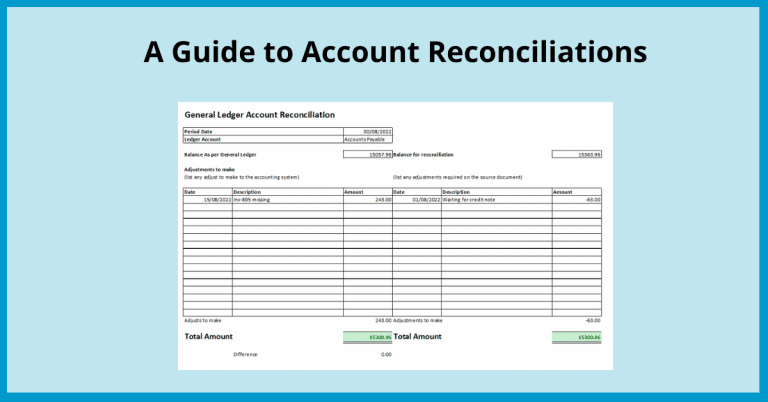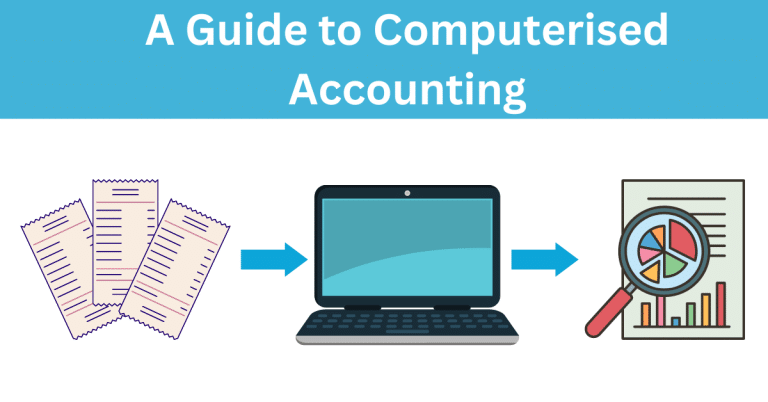Benefits of Hiring an Accountant for Small Business
Many small business owners try to save money by handling their accounting and bookkeeping. However, this is often a false economy, as the time spent on these tasks could be better spent growing the business.


Finding the right accountant you want to work with can be difficult, but researching and talking to other business owners may help you find the best-qualified accountant to look after your business’s financial affairs.
Here are 10 benefits of hiring an accountant for your small business.
1. A Professional Accountant can Save a Small Business Time
A qualified accountant can save a small business time by keeping track of the company’s finances and preparing accurate financial reports. This can free up the business owner’s time to focus on other business marketing and sales.
2. An Accountant can Help a Small Business Save Money
A professional accountant can help a small business save money by ensuring that the company is claiming all of the deductions and tax credits it is entitled to claim. They can also help to negotiate better terms with suppliers and lenders.
3. An Accountant can Provide Expertise and Guidance
Many new business owners are surprised to learn just how important accounting is to the success of their startup. An experienced accountant can provide valuable expertise and guidance, helping to ensure that your business is on solid financial footing from the start.
One of the most essential things an accountant can do is help you develop a business plan. This document will lay out your company’s financial goals and projections, which will be essential for securing funding from investors.
An accountant can also help you choose the right accounting software for your business, set up efficient bookkeeping procedures, and stay compliant with tax laws. In short, an accountant is a vital partner in any business venture. With their help, you’ll be better prepared to navigate the challenges of running a successful company.
4. Provide Peace of mind
An accountant can provide peace of mind by ensuring all legal obligations and accounting rules are followed. This peace of mind is essential for businesses, allowing them to focus on their core operations and goals.
Accountants can also advise on financial matters, helping businesses make sound decisions that will lead to long-term success. In addition, by keeping accurate records and producing financial statements, accountants can help businesses to track their progress and identify areas where improvements can be made.
5. Stay on top of taxes
No business owner wants to owe the government money come tax time, but unfortunately, tax liability is often a complex and challenging issue. This is where an accountant can be a valuable asset to any business.
A good accountant will stay on top of your financial records and tax deadlines and help to ensure that all tax paperwork is filed accurately and on time. Furthermore, an accountant can help to minimise a business’s tax liability by taking advantage of tax deductions and credits. Businesses can save money and avoid costly tax penalties by working with an accountant.
6. Help you to keep compliant with accounting rules
Any business, no matter its size, needs to stay compliant with accounting rules and standards. An accountant helps you do just that. They ensure the company’s financial records are up-to-date and accurate and that you report your financials according to accounting standards.
This compliance is essential for many reasons. It helps lenders and investors assess your business and protects you from potential legal trouble. In short, an accountant is a valuable asset for any business owner who wants to stay compliant with accounting rules.
7. They will deal with complex issues like VAT
VAT is a tax that is levied on the majority of goods and services that are sold in the UK. VAT-registered businesses must charge VAT on their products and services and then pay it to HMRC.
VAT can be complex, and many businesses struggle to stay compliant. This is where an accountant can help. An accountant can ensure that a business is VAT compliant and advise on which VAT scheme would be most beneficial for the business.
8. Advise on the Best Small Business Structure
Deciding on the best business structure can be complex and confusing for many entrepreneurs. However, it is an important decision, as the type of business structure you choose will have implications for taxation, liability, and even your personal finances.
An accountant can advise you on the best business structure for your circumstances. For example, if you are self-employed, you must register as a sole trader with HMRC. If you are starting a partnership, you must draft a partnership agreement. And if you are setting up a limited company, you must register at Companies House.
By seeking professional advice from a good accountant, you can ensure that you choose the best small business structure for your needs.
9. Completing year-end accounts
A reliable accountant can be beneficial when it comes to completing your year-end accounts.
Part of the year-end accounts is ensuring all the figures are correct. Year-end journals are required, which might include accruals, prepayments, depreciation and adjustments.
A Self-assessment tax return can be daunting, but an accountant can ensure that everything is submitted correctly and on time. If you are a Limited company, they will submit the accounts in the correct format to Companies House.
10. Producing Financial Statements
As a small business owner, you know that producing accurate financial reports is essential for making sound business decisions. But if you’re like most small businesses, you don’t have the time or expertise to produce these statements yourself. That’s where an accountant comes in.
An accountant can prepare balance sheets, income statements, and cash flow forecasts to give you the information you need to make informed decisions about your business. In addition, an accountant can help you establish financial controls and procedures to ensure accuracy and prevent fraud.
Finding the Best Accounting Software
If you’re looking for the best accounting software for your business, it’s essential to do your research. There are many options, and knowing which is right for you can be challenging. However, an accountant can be a great resource when finding the best accounting software.
Accountants have a lot of experience working with different software programs and can offer valuable insight into which ones are the best for your business. They can also help you find discounts on accounting software, so it’s worth talking to them before purchasing.
Do I need an In House Accountant?
Many small businesses wonder if hiring an in-house accountant or accounting practice is necessary. There are pros and cons to both options.
An in-house accountant can get to know your business better and provide more personalised service. However, they may also be more expensive and not have the same breadth of knowledge as an accounting practice.
An accounting practice may be less expensive and can offer a broader range of services, but they may not be as knowledgeable about your specific business. Ultimately, the decision depends on your particular needs and budget.
Disadvantages of Hiring an Accountant
Hiring an accountant can be a considerable expense for a small business.
In addition to the fee for their services, you may also need to purchase accounting software and pay for ongoing training and support. If careless, you can easily spend more on accounting than you ever save in taxes.
Finding the right accountant is also critical. A good accountant will be up-to-date on the latest tax laws and know how to maximise deductions. They will also be able to provide helpful advice on financial planning and cash flow management. However, a bad accountant can do more harm than good.
If you’re not careful, you could pay too much in taxes or make poor financial decisions. As a result, it’s essential to do your homework before hiring an accountant. Otherwise, you could end up regretting your decision down the road.
For most small businesses, hiring an accountant outweighs the disadvantages.
Where to Find an Accountant
If you have decided to hire an accountant for your business finances, you need to know the best places to look. Some options are:
Accounting Software Directory
If you already use accounting software, most include a directory of accountants specialising in the package.
Check out local pages and ask for recommendations; make sure it is accountants that people have used, and they are not putting themselves forward.
Speak to other Small Businesses
One of the best ways to hire an accountant is to get recommendations from other local businesses, especially if they are in the same industry.
LinkedIn is a popular place for placing adverts and accountants to look for work.
Google Search and Google Maps
One of the best places to find an accountant is by looking on Google Maps and checking out reviews. A recommendation is always better, but you can find the right business with research.
Questions to ask an Accountant
When hiring an accountant, it is worth having a list of questions to ask. Find out if they are a chartered accountant or what qualifications and experience they have.
Conclusion on the benefits of Hiring an Accountant
It might be time to reconsider if you are a small business owner handling your accounting and bookkeeping. There are many benefits to hiring an accountant, including saving time and money, financial planning and providing peace of mind. So why not free up valuable time and give yourself a well-deserved break? Your business will thank you for it!












